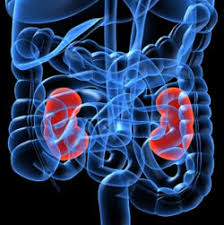Treatment of Acute Renal Failure (ARF)
 Once the cause of acute renal failure (ARF) is found and has developed, A variety of therapeutic approaches have been used. The goal of Acute Renal Filure (ARF) treatment is to restore kidney function and prevent fluid and waste from building up in the body while the kidneys heal.
Once the cause of acute renal failure (ARF) is found and has developed, A variety of therapeutic approaches have been used. The goal of Acute Renal Filure (ARF) treatment is to restore kidney function and prevent fluid and waste from building up in the body while the kidneys heal.And also to prevent acute ischemic and nephrotoxic renal injury and to improve renal function and reduce mortality. Usually, the Acute Renal Failure(ARF) patient has to stay overnight in the hospital for treatment.
Unfortunately, there have been few rigorous assessments of the efficacy of the Acute Renal Failure (ARF) treatment interventions. The reasons for the lack of abundant critical data regarding treatment effects in ARF are several.
First, ARF is a functional disorder. It has a spectrum of etiologies, occurs in a variety of clinical settings and varies in severity.
Second, selected endpoints of treatment success vary and co-morbid factors frequently determine outcome.
Third, it had been difficult to carry out prospective controlled studies in a disorder in which the mortality rate approaches 50%.
 In this review, an effort was made to analyze the available literature with a primary focus on controlled studies to determine significant prophylactic and treatment effects of various interventions in ARF.
In this review, an effort was made to analyze the available literature with a primary focus on controlled studies to determine significant prophylactic and treatment effects of various interventions in ARF.The amount of liquid Acute Renal Filure(ARF) patient eats (such as soup) or drink will be limited to the amount of urine the patient can produce. Patient will be advised what patient may and may not eat to reduce the build-up of toxins normally handled by the kidneys.
High in carbohydrates and low in protein, salt, and potassium will be the diet of Acute Renal Failure (ARF)
Three endpoints of Acute Renal Failure(ARF) therapy (change in renal function, change in course of azotemia, and change in mortality) were examined for pharmacologic agents. Changes in course of azotemia and mortality were assessed in evaluating different dialysis modes.
Effect on nitrogen balance, change in course of azotemia, and change in mortality were used as endpoints to determine treatment effects of different nutritional regimens. When weight was given to prospective controlled studies, some insights emerged as to treatment interventions that are most likely to have beneficial effects in specific settings of ARF.
Among pharmacologic agents, antibiotics to treat or prevent infection. Diuretics ("water pills") may be used to help the kidneys lose fluid. Calcium, glucose/insulin, or potassium will be given through a vein to help avoid dangerous increases in blood potassium levels. mannitol appears to have a positive prophylactic effect in kidney transplantation. There are no other significant beneficial effects of diuretics for prophylaxis or as treatment in early or established Acute Renal Failure (ARF).
Of vasoactive agents, there is a relatively small amount of data suggesting that diltiazem may have a positive prophylactic effect in kidney transplantation, and dopamine possibly is beneficial early in the evolutionary phase of Acute Renal Failure(ARF). Atrial natriuretic peptide and calcium channel blockers may have beneficial effects in established disease.
No other pharmacologic interventions are supported by substantial data. At best, the results are equivocal regarding the use of early and vigorous dialysis in ARF. Dialysis can make Acute Renal Failure(ARF) patient feel better. It is not always necessary, but it can save patient life if the potassium levels are dangerously high. Dialysis will also be used if patient mental status changes, stop urinating, develop pericarditis, retain too much fluid, or cannot eliminate nitrogen waste products from the body.










0 Comments:
Post a Comment
Subscribe to Post Comments [Atom]
<< Home